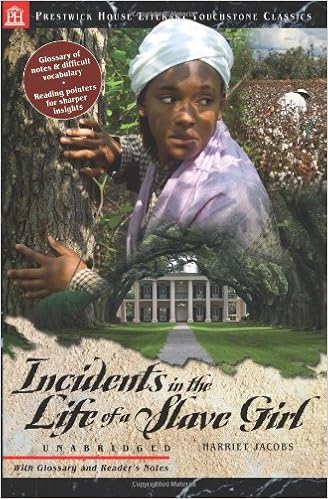
Having read other slave testimonials, I was not surprised by the stories Douglass recounts in his narrative. The tales of a master using cowhide rods to beat a slave until she bleeds, waiting for it to heal for a few hours while she is hog-tied, and then beating her again in the same place are horrifying and never easy to read, but we must not forget this wretched era of our country's history. It is important to keep these stories alive.
What sets this narrative apart, though, is Douglass's ability to analyze the psychology behind slaves, slave owners, and taskmasters. As one example, Douglass explains that part of the secret to keeping slaves from rebelling or running away is to convince them that they would be worse off if they were free. One way to do this is to let the slave overindulge in something in order to lose faith in his ability to control himself. One time a slave got into the plantation house and ate some molasses. The owner went to town and got a huge bucket of molasses and made the slave eat so much that he never wanted to see molasses again. The owner used this as a way to teach the slave that he would destroy himself if it were not for the watchful, protective eye of the slave owner.
Further, Douglass elaborates on the role of Christianity in slavery. Though most modern Christians deny that the Bible endorses slavery, from the perspective of Douglass, there was no crueler master than the zealously religious master, for it was the religious master that could use religion as a barrier to his own conscience and therefore commit more heinous acts than an ordinary conscience would allow. Douglass recounts the time one of his masters went to a religious revival. Hoping the master would return as a less violent, kinder person, Douglass was dismayed to see his master's poor attitude had morphed into righteous fury, making him a far more contemptible slave owner than he had previously been.
This is a taste of what Douglass brings you in this slim volume. It's a one-sitting read that is more than worth the few hours you will invest. Recommended for everyone.
No comments:
Post a Comment